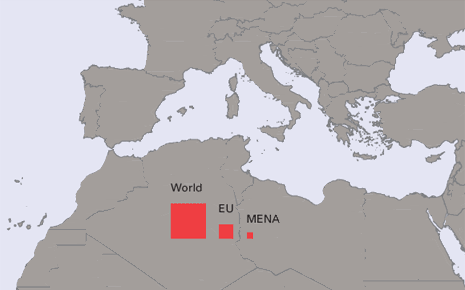We are aware that Donald Trump does not take advice from anyone in his cabinet or inner circle. But when it comes to sanctions, tariffs and red lines, it appears he takes his cues from Russian president Vladimir Putin, Fox & Friends and the voices in his head. When Trump tweeted that he was going …
Tag: Europe
Jun 14 2014
Meanwhile in Europe
 Alessandra Bernaroli has been battling with the Italian government for the past five years to keep her legal marriage in tact.
Alessandra Bernaroli has been battling with the Italian government for the past five years to keep her legal marriage in tact.
When I was small I liked to play with little girls, I was looking to understand their femininity. I dreamed of becoming a woman but I had no idea what trans-sexuality was.
The 43-year-old bank employee from Bologna was living as a male when she met her wife in the mid-1990s. The couple wed in 2005. It was only after the marriage that Alessandra exposed her transgender feelings to her spouse.
I hid my inner torment from my wife but I felt trapped in a prison, in a body that had become an enemy to me. I suffocated my true identity.
–Bernaroli
After Bernaroli came out to her wife, her wife agreed to stand by her throughout the process. Alessandra underwent a series of operations in Thailand in 2009.
When they returned to Italy and sought to update their national identity cards, they were informed that they would no longer be classified as married.
May 25 2013
The EU LGBT survey: data and advice
When Viviane Reding, Vice-President of the European Commission, called for more research on the effects of homophobia, the Agency for Fundamental Rights stepped forward.
 The result is the EU LGBT survey. As always, I have read the relevant pdf so that you do not have to do so.
The result is the EU LGBT survey. As always, I have read the relevant pdf so that you do not have to do so.
In the past decade, a growing number of international and national developments have addressed the fundamental rights of lesbian, gay, bisexual and transgender (LGBT) persons. Standards on non-discrimination and equality for LGBT persons have been further developed or reinforced by the European Union (EU), the Council of Europe and the United Nations (UN). Sexual orientation and gender identity have increasingly been recognised as grounds of discrimination in European and national legislation. Today, the situation of LGBT persons in the EU is no longer a marginalised issue but a recognised human rights concern.
–Morton Kjærum, Director of the Agency for Fundamental Rights (FRA)
Feb 15 2013
The High Cost For Bad Internet Connection In The US
Cross posted from The Stars Hollow Gazette
Recently the Federal Communications Commission announced that it wanted to create a free super Wi-Fi network across the country, virtually eliminating a monthly internet bill. Naturally, the telecommunication giants and the lawmakers in Congress who protect them are opposed. In Europe, internet users enjoy inexpensive, high speed access to a broadband, phone, and cable TV package for as little as $40 a month. The phone service has unlimited local calling and a lot of free international calls.
Bloomberg View contributor and visiting professor at the Harvard Kennedy School of Government and Harvard Law School, Susan Crawford notes that Americans pay a high price for slow and bad internet connections at a time when “the internet has taken the place of the telephone as the world’s basic, general-purpose, two-way communication medium“. In the article, she describes how a city in Louisiana brought cheaper, high speed internet to its community despite opposition from the telephone and local cable companies:
Terry Huval is a large, friendly man with a lilting Southern accent who plays Cajun fiddle tunes in his spare time. He is also the director of utilities in Lafayette, Louisiana. “Our job is making sure we listen to our citizens,” he says.
In 2004, the Lafayette utilities system decided to provide a fiber-to-the-home service. The new network, called LUS Fiber, would give everyone in Lafayette a very fast Internet connection, enabling them to lower their electricity costs by monitoring and adjusting their usage.
Push-back from the local telephone company, BellSouth Corp., and the local cable company, Cox Communications Inc., was immediate. They tried to get laws passed to stop the network, sued the city, even forced the town to hold a referendum on the project — in which the people voted 62 percent in favor. Finally, in February 2007, after five civil lawsuits, the Louisiana Supreme Court voted, 7-0, to allow the network.
From 2007 to mid-2011, people living in Lafayette saved $5.7 million on telecommunications services.
Prof. Crawford joined Bill Moyers on Moyers & Company to discuss why U.S. internet access is slow, costly and unfair
Susan Crawford, former special assistant to President Obama for science, technology and innovation, and author of Captive Audience: The Telecom Industry and Monopoly Power in the New Gilded Age, joins Bill to discuss how our government has allowed a few powerful media conglomerates to put profit ahead of the public interest – rigging the rules, raising prices, and stifling competition. As a result, Crawford says, all of us are at the mercy of the biggest business monopoly since Standard Oil in the first Gilded Age a hundred years ago.
“The rich are getting gouged, the poor are very often left out, and this means that we’re creating, yet again, two Americas, and deepening inequality through this communications inequality,” Crawford tells Bill.
Dec 18 2011
Capitalists no longer need or want democracy
“the marriage between capitalism and democracy is over.”
– Slavoj Zizek
Politics is never in a static state. It is always in transition.
Thousands of years ago Aristotle wrote how monarchies become aristocracies, become tyrannies, become democracies, become monarchies, and so forth.
The United States, being both a young country AND one of the oldest continuous democracies, doesn’t have the cultural maturity to see the change when it approaches.
For instance, Americans are still in denial how the country went from being a democracy to an Empire in 1945.
We are also in denial about the changes the political economy has underwent since the early 1990’s.
I use the term “political economy” because that was what the study of economics was called until about a century ago. It’s what Adam Smith and David Ricardo studied.
The fact that the study of economics fails to take politics into account today is probably its biggest reason why it has become a total failure.
Oct 30 2010
Austerity Fatigue: “Are we Equipped To Have The Debate That Will Follow The Elections?”
Laura Flanders of GRITtv talks with political economist Professsor Richard Wolff about economic collapse, austerity programs, and the recent and growing anger and popular uprisings and street actions in Europe that we may soon be seeing spreading to North America:
“It’s a bizarre idea to fix a global capitalist crisis by breaking a long-term promise,” notes Richard Wolff, economist and author of Capitalism Hits the Fan of the “austerity” measures rocking Europe’s social democracies at the moment. Governments across Europe are implementing drastic cuts to social safety nets, raising retirement ages, all in the name of fiscal responsibility, and people have taken to the streets–in France, between 1.3 and 2.9 million people have come out in protest, a percentage that Wolff notes would be equivalent to between 6.5 and 14.4 million [in the U.S.].
So what’s going on in Europe, and what are the lessons we can learn from the European left? Wolff joins us along with Inez McCormack, Chair of the Participation and the Practice of Rights Project in Ireland, to talk us through the crisis, the lessons, and the ongoing struggle.
Oct 17 2010
Nonviolence does not equal complacency
Originally posted at PoliZeros.
I went to a protest in Philadelphia this past Saturday, and it was more disheartening than anything else. It was against the wars and various other injustices, with a special focus on he recent FBI raids of peace activists and Pennsylvania Homeland Security spying on innocent civilians and activists.
By the end of it, I kind of just felt like going up to the megaphone and asking, “How much moral outrage can one person muster? There are more people handing out fliers here than not, and with this country committing so many disgusting, outrageous acts, I don’t blame you.” I won’t lie, I handed a few out myself. Yet the contrast between the righteous causes featured in the speeches and on the signs and on the fliers and the, as a fellow protester said to me, “complete lack of solidarity” was striking.
Oct 06 2010
People Power: European Activism & Constitutional Crises
All across Europe recently there have been wave after wave of co-ordinated general strikes and massive demonstrations showing a solidarity and a unity across unions representing different kinds of workers in different countries, different levels of skill, against austerity proposals by governments, that put to shame the levels of public street activism in the US and Canada.
Fresh off a summer lecturing in Greece and France, economist, author, and Professor Emeritus of Economics at the University of Massachusetts, Amherst, Richard D. Wolff, well-known for his work on Marxian economics, economic methodology and class analysis, Yale University Ph.D. in Economics, and Professor at The New School University in New York City, gives his analysis on the massive European mobilizations and strikes. He also compares the US movement to the European one, and find the European workers to be much more advanced in their struggle.
This extraordinary unity is all built around a central demand which can be conveyed by their chief slogan: we are the working people who produce the profits, the goods, and the service of the capitalist economy; we are not going to pay for its crisis. And that’s really the central demand, that if the banks and the corporations and the speculations produced a crisis that working people had no role in-and I want to remind viewers that in Europe they didn’t even have the mortgage kind of crisis in European countries that we had here; it was a crisis of the banking sector, the financial, large corporations, and so on-the demand of the people is, we are not going to be made to pay. You’re not going to solve this economic crisis by having the government borrow money, throw the money at the banks and the big corporations, bail them out, and then make the mass of people pay by cutting government payrolls, by cutting government services, all those things called austerity.
Real News Network – October 05, 2010
European Workers Distance from US Through Action
Richard Wolff: European workers say they won’t pay for crisis while US counterparts talk of ‘One Nation
(transcript below)
Apr 30 2010
Who will build the World’s Largest Solar Power Plant?
Within the space of six hours, the world’s deserts receive more energy than all the people in the world consume in a year. The only question we have to answer is:
“How can this radiant energy be economically transformed into useful
energy and transported to consumers?”The DESERTEC Concept provides a solution to this.
[…]
In order to meet today’s global power demand […] it would suffice to equip about 3/1000th of the world’s deserts (about 90,000 km2) with solar collectors of solar thermal power plants. About 20 m2 of desert would be enough to meet the individual power demand of one human being day and night — all this absolutely CO2 free.
[pg 6] Europe’s Desertec project Red Paper (pdf)

The Race is ON — to find the World’s Largest Solar Footprint!
Here are some of the contenders …
Large-scale photovoltaic power plants
Ranks 1 – 50
Apr 14 2010
Europe on the verge of another financial crisis?
The IMF has been making a lot of noise recently, but their biggest move almost managed to slip through completely unnoticed.
The Executive Board of the International Monetary Fund (IMF) today approved a ten-fold expansion of the Fund’s New Arrangements to Borrow (NAB) and the transformation of the Fund’s premier standing credit arrangement into a more flexible and effective tool of crisis management. The NAB will be increased by SDR 333.5 billion (about US$500 billion) to SDR 367.5 billion (about US$550 billion), representing a major increase in the resources available for the Fund’s lending to its members.
This IMF program didn’t even exist until a year ago, when the IMF began issuing SDRs for the first time since the 1970’s. The IMF has only sold SDRs in times of global financial stress.
It makes a person wonder “Why now?” Why is the IMF suddenly tripling its lending facilities? What do they know that we don’t?
To answer that, let’s look at the announcements of the past few weeks.
Dec 06 2009
Solar Cell 40% Efficiency Breakthough, becomes Product Ready
This 40% breakthrough … has finally become available for your home (maybe?) and office use …
Solar cell breaks efficiency record
Michael Kanellos, CNET News — December 6, 2006
Boeing-Spectrolab has developed a solar cell that can convert almost 41 percent of the sunlight that strikes it into electricity, the latest step in trying to drop the cost of solar power.
Potentially, the solar cell could bring the cost of solar power down to around $3 a watt, after installation costs and other expenses are factored in, over the life of the panel.
[…]
Current silicon solar cells provide electricity at about $8 a watt, before government rebates. The goal is to bring it to $1 a watt without rebates or incentives.
http://news.cnet.com/Solar-cel…
Here is the Final Product from Spectrolab for your Home use. from this week’s news.
Nov 25 2009
On Giving Thanks The European Way, Or, Freedom: It’s The New Black!
I have a Thanksgiving story for your consumption that has nothing to do with turkeys or pumpkin pie or crazy uncles.
Instead, in an effort to remind you what this holiday can really stand for, we’ll meet some people who are thankful today for simply being free.
It’s a short story today, but an especially touching one, so follow along and we’ll take a little hop across the Atlantic for a trip you should not miss.
